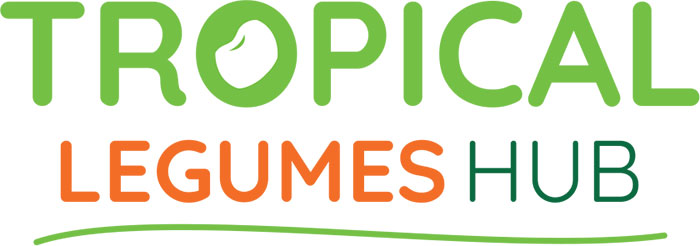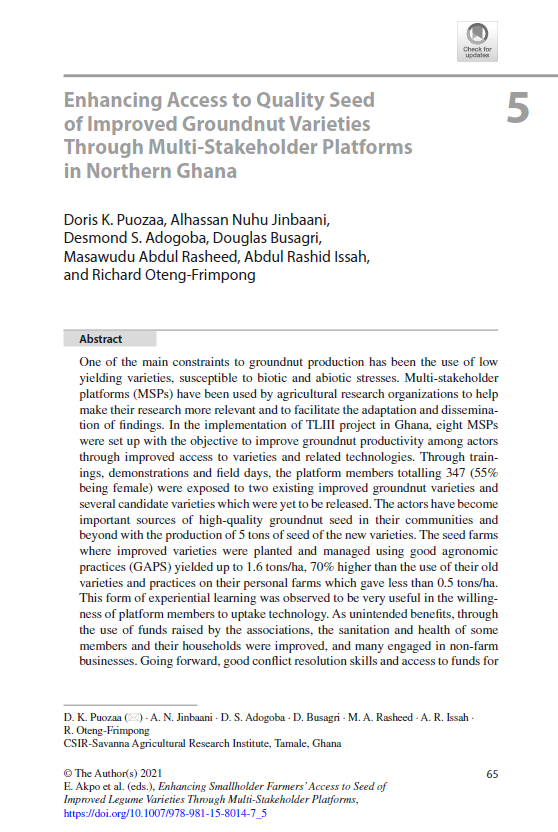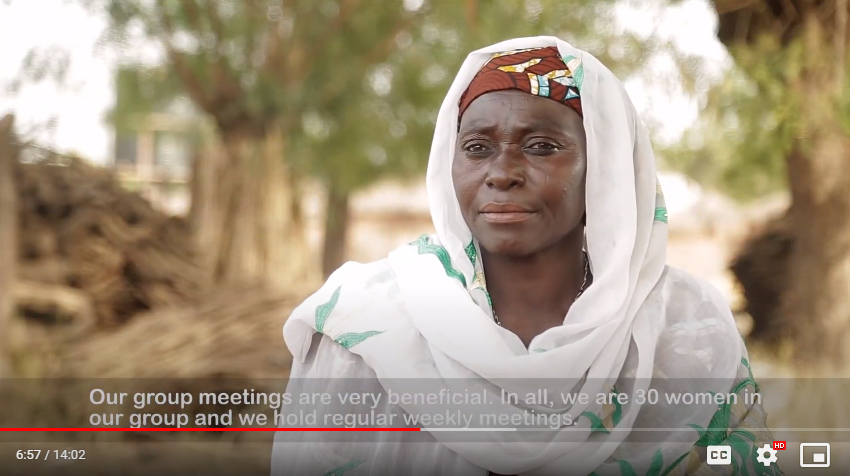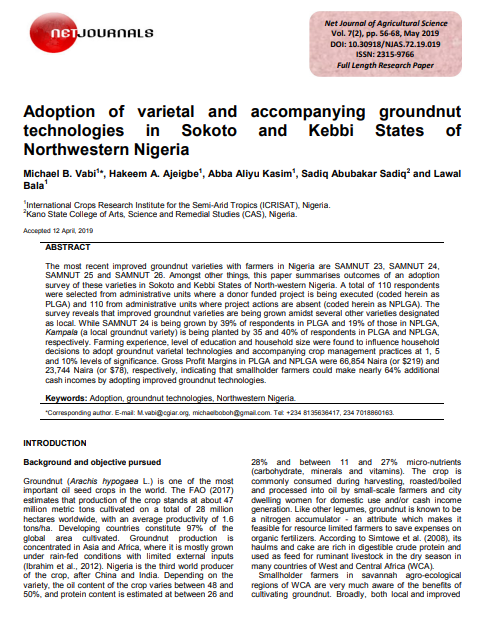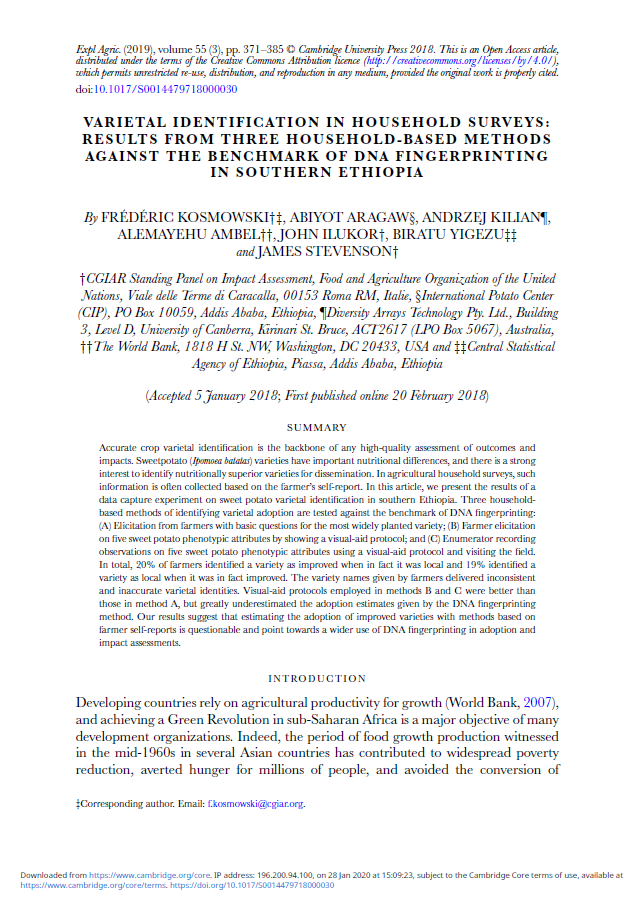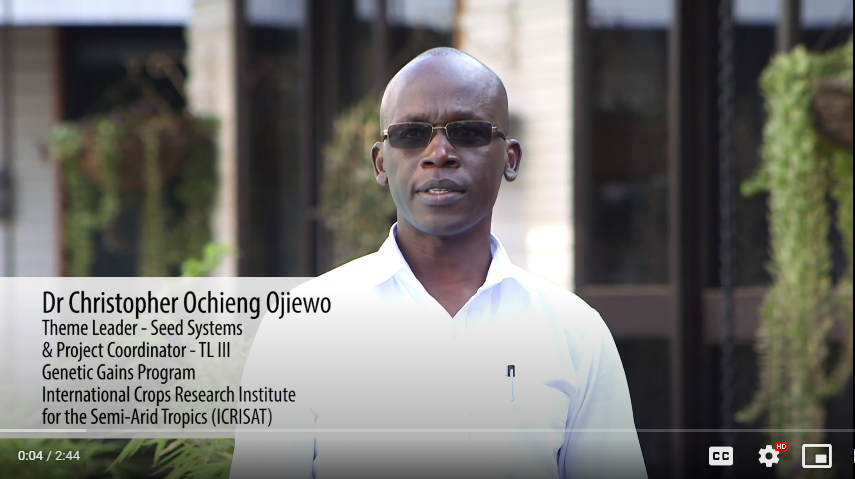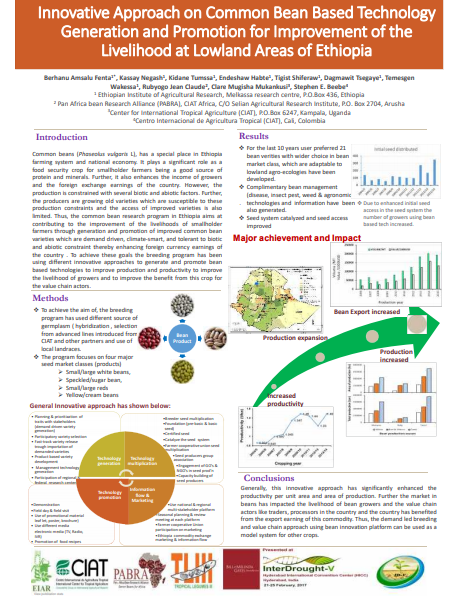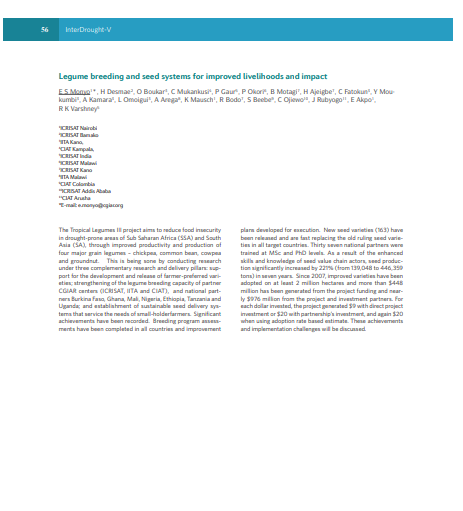Enhancing Smallholder Farmers’ Access to Seed of Improved Legume Varieties Through Multi-stakeholder Platforms (Enhancing Access to Quality Seed of Improved Groundnut Varieties Through Multi-Stakeholder Platforms in Northern Ghana: Chapter 5 of 14)
Chapter 5 of a book that shares the experiences of TL III in facilitating smallholder farmers’ access to seed of improved legume varieties through innovation platforms in seven developing countries for the past 12 years.
Project: TLIII
File type: PDF (415.45 KB)
Using quality seeds of improved varieties to attract youth to agriculture and reduce migration
This video demonstrates how innovations in cowpea seed production and improved varieties in Ghana are reducing youth migration by attracting younger generations to agriculture. Watch the video to hear testimonies from farmers working in Ghana today.
Project: TLII, TLIII
File type: External site
Nigeria Country Plan Baseline and Varietal Monitoring Survey
This report documents the adoption of improved cowpea varieties in Nigeria using two approaches: a traditional survey approach in which information was directly elicited from farmers, and a DNA fingerprinting approach.
Project: TLII, TLIII
File type: PDF (2.18 MB)
Village Savings and Loans Associations (VSLA) Success Story
The Tropical Legumes projects identified strategic partnerships as a way to reach women farmers. In northern Ghana, to address women’s limited access to finance, the initiatives worked with small-scale community financial institutions called Village Savings and Loans Associations (VSLAs) to extend loans to women farmers. This video tells the story of the success of the VSLAs in Ghana.
Project: TLIII
File type: External site
Adoption of varietal and accompanying groundnut technologies in Sokoto and Kebbi States of Northwestern Nigeria
This paper summarises the outcomes of an adoption survey of new groundnut varieties in north western Nigeria.
Project: TLIII
File type: PDF (385.38 KB)
Varietal Identification in Household Surveys: Results from Three Household-based Methods Against the Benchmark of DNA Fingerprinting in Southern Ethiopia
This article presents the results of a data capture experiment on sweet potato varietal identification in southern Ethiopia. The results point towards a wider use of DNA fingerprinting in adoption and impact assessments.
Project: TLII, TLIII
File type: PDF (364.31 KB)
Chris Ojiewo, Theme leader – Genetic Gains Program, ICRISAT
Chris Ojiewo, Seed systems & Project coordinator for the Tropical Legumes projects, explains the many challenges involved in seed multiplication, why the private sector often fails to invest in these seeds, and what drives farmers to purchase seeds from the open market and not from authentic sources This video also explores what strategies are needed to improve seed supply and demand for the benefit of smallholder farmers.
Project: TLIII
File type: External site
An innovative approach to common bean-based technology generation and the promotion of improved livelihoods in the lowland areas of Ethiopia
This poster describes the different approaches – including hybridization and selection from advanced lines – that Ethiopia’s common bean research programs has adopted to fast-track variety evaluation and registration.
Project: TLIII
File type: PDF (160.09 KB)
Breeding tropical legume crops for resilient cropping systems in Sub-Saharan Africa
This poster abstract summarizes the achievements of CGIAR centers and national research partners, who have with the support of the Tropical Legumes project enhanced legume crop production in Sub-Saharan Africa through the use of genetic technology.
Project: TLIII
File type: PDF (106.17 KB)
Legume breeding and seed systems for improved livelihoods and impact
This abstract summarises the aims and achievements of the Tropical Legumes project with national breeding programs to develop improved groundnut varieties by identifying sources of resistance, developing populations, evaluating in target environments, and releasing improved farmer-preferred varieties for production.
Project: TLIII
File type: PDF (93.83 KB)
